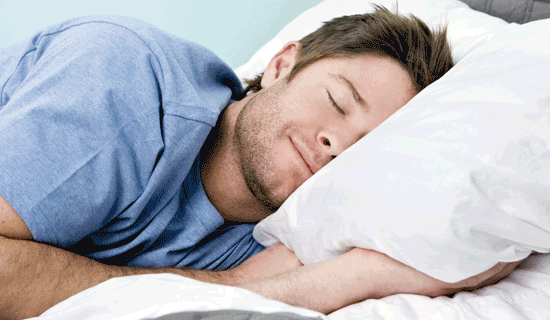
Keeping our minds and bodies healthy will allow us to go where God gives us opportunities to minister.
Work Hard and Sleep Well
by John Brummitt
Most Americans let two things slide that are very important to our health and wellness—sleep and exercise. We rarely get enough of either. With our busy lives it is hard to find time to squeeze everything into a day. Yet consider the negative effects of neglecting these two actions.
Get Moving
Physical activity is probably the most important part of living a healthy life. The problem is, we rarely find or take the time for it. There are 1,440 minutes in every day. We only need to set aside 30 of them to improve our health. According to a 2000 National Health Interview survey, 64% of men and 72% of women fail to engage in physical activity on a daily basis. Physical activity includes anything that increases our heart rate, from taking a walk to jogging or mowing the lawn. In other words, anything that gets us moving.
The importance of exercise is not to make us look a certain way. Movies and magazines lead us to believe that we need three percent body fat and rock hard abdominal muscles to be in shape. While those are good goals to shoot for, they are not realistic for most of us. We need to focus more on our body image than the image of our bodies. We should exercise to feel better, not just to look better.
If the purpose of working out is to attain a certain look, we will get discouraged when we don’t see quick results. Exercise has positive effects on our entire body: heart and circulatory system, respiratory system, muscular system, skin, and even body temperature. (Raising the temperature of the body during exercise promotes the burning of the toxins in the body.)
Exercising also benefits mental health and stress levels. When we exercise, our body releases chemicals called endorphins, which improve mood and the way we feel about ourselves. Exercising helps manage stress levels as we release built-up tension. There is evidence that regular exercise also helps to ward off depression and anxiety.
Not only does exercise help us manage our mental health it also helps improve our physical health. Exercise helps with weight loss, although without the proper changes in diet, it provides only modest weight loss. Exercise also helps ward off diseases such as heart disease, stroke, type II diabetes, obesity, chronic back pain, osteoporosis, and certain types of cancer. It may also improve our immune system to help ward off colds and viruses.
WebMD lists 10 important facts about regular exercise: 1) Exercise boosts brainpower. 2) Movement melts away stress. 3) It gives you energy. 4) It’s not that hard to find time for exercise. 5) Fitness can help build relationships. 6) Exercise helps ward off disease. 7) Fitness pumps up your heart. 8) Exercise lets you eat more. 9) Exercise boosts performance. 10) Weight loss is not the most important goal.
Damage Control
Many of us struggle to get the right amount of sleep. Sadly, if we don’t get enough sleep we put our bodies at risk for diabetes, high blood pressure, and heart disease. On the reverse side of the sleep coin, if we get too much sleep we put ourselves at risk for all the same health problems. In order to function at full capacity, the average adult should get between seven and eight hours of sleep each night. Yet if we average more than nine hours, our health remains at risk.
We need sleep to function properly. While we sleep, our bodies perform maintenance to repair the damage incurred by daily activities. Healthy cell growth and tissue repair are two of the main functions that occur during daily down time for adults.
For children, sleep is when the growth hormones are released. These hormones are essential to their mental and physical development. Children who don’t get adequate sleep are often cranky, uncooperative, and difficult. So we benefit from their sleep as well.
Sleep is also necessary for our nervous systems. Neurons regenerate and repair themselves while we sleep. Neurons help us function as effectively as possible on both the physical as well as the mental sides. People who are sleep deprived often suffer side effects.
Missing one night of sleep may cause drowsiness and lack of concentration the next day. Successive nights may lead to impaired memory and impaired physical performance. If we still do not correct the problem, we may experience hallucinations, mood swings, and physical symptoms such as loss of appetite, changes in physical appearance, headaches, etc.
Before skipping the gym or staying up to watch late night television, we need to consider the long-term consequences! Keeping our minds and bodies healthy will allow us to go where God gives us opportunities to minister. A little work and sacrifice on the front end goes a long way toward our goals of leading a happy, healthy, productive life.
About the Writer: A 2004 graduate of Free Will Baptist Bible College, John Brummitt is CFO for the Free Will Baptist Board of Retirement. He began working for the board in the spring of 2006. An avid runner and founder of a middle-Tennessee running club, he chairs the wellness committee for the Free Will Baptist National Offices.
Resources:
|

